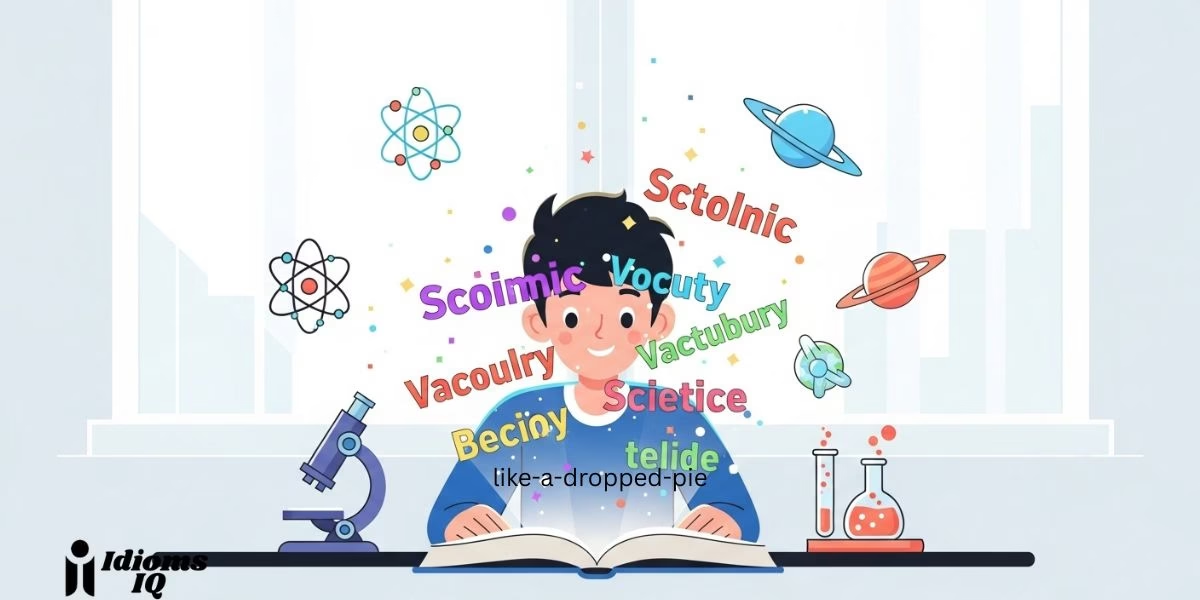
Key Highlights
- A science vocabulary list strengthens your understanding of core concepts and boosts exam performance, especially for assessments like the ACT.
- Organizing a word list by subject biology, chemistry, physics makes mastering key terms easier for all learners.
- Kid-friendly lists and printable resources help younger students learn essential science vocabulary words through hands-on activities.
- Using flashcards, fun experiments, and real-life examples supports memorization and scientific literacy.
- Simple explanations and glossaries ensure every term atom, chemical reaction, pH, carbon dioxide, amino acids is easy to understand.
- Avoiding common mistakes with scientific vocabulary helps you apply knowledge confidently in class and on tests.
Introduction
A robust grasp of scientific terminology is essential for fostering curiosity and comprehension in the world of science. This vocabulary enriches communication and enhances critical thinking, facilitating deeper understanding through precise language.
A comprehensive science vocabulary list serves as a powerful tool, empowering learners to engage with concepts such as chemical reactions and kinetic energy. By familiarizing students with key terms like atom, viscosity, and carbon dioxide, educators can ignite a passion for discovery and exploration in young minds.
Related: Science Words That Start With A
Understanding the Importance of Scientific Vocabulary
A robust grasp of scientific vocabulary jams is essential for fostering comprehension and deeper engagement with complex concepts. It serves as the foundation for discussions regarding phenomena such as chemical reactions and the properties of matter, like viscosity and friction.
The ability to understand and use terms effectively allows learners to navigate various disciplines including life sciences, chemistry, and physics, ultimately enhancing their scientific literacy. This vocabulary empowers students to communicate findings clearly, fostering critical thinking and analysis skills.
Why Scientific Terms Matter in Education
Mastery of scientific terminology lays the groundwork for effective learning in various disciplines. Familiarity with a robust science vocabulary list empowers students to grasp complex concepts, such as chemical reactions and kinetic energy, enhancing their cognitive understanding.
Furthermore, precise language fosters communication and discussion among peers, crucial for collaborative projects. Students equipped with a comprehensive list of word bank also develop critical thinking skills, enabling them to analyze data and synthesize information, ultimately contributing to scientific literacy and academic success.
How Vocabulary Enhances Scientific Literacy

A rich repertoire of scientific vocabulary significantly boosts comprehension and engagement in educational settings. Understanding terms like “chemical reaction,” “viscosity,” and “kinetic energy” enables students to articulate concepts clearly, facilitating discussions and deeper insights.
Additionally, familiarity with this word list fosters critical thinking, as learners are better equipped to analyze and synthesize information from various scientific disciplines. Ultimately, a well-rounded science vocabulary not only enhances academic performance but also prepares students for real-world applications, promoting a lifelong passion for discovery.
Organizing Science Vocabulary by Subject
Creating a comprehensive science vocabulary list is essential for grasping concepts within various scientific fields. Organizing vocabulary by subject enhances retention and understanding, allowing learners to navigate terms like “chemical reaction,” “carbon dioxide,” and “viscosity” more effectively.
In life sciences, terms such as “amino acids” are crucial, while chemistry revolves around key phrases related to “atom” and “pH.” Physics brings in concepts like “kinetic energy” and “friction,” illustrating the interconnectedness of vocabulary across disciplines.
Life Science & Biology Terms
A foundational understanding of life science and biology hinges on a rich science vocabulary list, filled with essential terms. Concepts such as amino acids, carbon dioxide, and the intricate processes of photosynthesis connect students to the living world around them.
Emphasizing terms like ecosystems and cellular respiration fosters a deeper understanding of biological interactions. Engaging with a list of words relevant to life sciences not only enhances retention but also promotes scientific literacy, making complex ideas more accessible and enjoyable.
Chemistry Vocabulary Essentials

Understanding the intricacies of chemistry requires a solid grasp of essential terms. Familiarity with concepts such as atom, chemical reaction, and viscosity forms the foundation for deeper studies. Other critical vocabulary includes pH, describing acidity or alkalinity, and carbon dioxide, a key component in various reactions.
Knowledge of amino acids is crucial for biochemistry, while kinetic energy relates to movement and reactions in matter. Mastery of these terms greatly enhances a student’s ability to engage with advanced scientific discussions.
Common Physics and Earth Science Words
Understanding common terms in physics and earth science is crucial for fostering a strong scientific foundation. Key vocabulary such as “kinetic energy,” “friction,” and “viscosity” highlights essential concepts that underpin various natural phenomena. Similarly, appreciating terms related to earth science, like “atom” and “carbon dioxide,” equips students to discuss environmental issues accurately.
Utilizing an organized science vocabulary list can greatly enhance comprehension and retention, enabling learners to engage meaningfully with scientific concepts and discussions.
Strategies for Learning and Memorizing Science Vocabulary
Engaging students with interactive methods proves effective for mastering a science vocabulary list. Utilizing flashcards enhances retention through repetition and challenge, allowing learners to associate terms like “chemical reaction” and “kinetic energy” with practical examples. Cooperative learning activities can foster discussion and excitement around words such as “viscosity” and “ph.”
Additionally, creating visual aids, such as word maps or diagrams, encourages deeper understanding and connection to concepts like atoms and amino acids. These strategies transform vocabulary acquisition into an enjoyable experience.
Fun Activities and Tools for Students

Engaging students in science vocabulary can be a thrilling experience. Utilizing interactive tools like flashcards promotes active recall and reinforces understanding of terms such as carbon dioxide and amino acids. Creating a word list game encourages friendly competition while familiarizing students with concepts like kinetic energy and viscosity.
Incorporating technology, such as educational apps, immerses learners in fun activities that enhance retention. These strategies not only make science enjoyable but also foster a deeper comprehension of essential terms across various subjects.
Printable and Kid-Friendly Resources
Creating engaging and printable resources significantly boosts children’s learning experience. Flashcards featuring key terms from a science vocabulary list, such as “atom,” “viscosity,” and “friction,” can make mastering scientific concepts fun and interactive.
Additionally, worksheets that challenge kids to identify chemical reactions or explore the properties of matter solidify understanding. Engaging activities tied to real-world applications, like experiments demonstrating kinetic energy, enhance retention while sparking curiosity. Overall, these resources transform traditional learning into an enjoyable adventure.
Conclusion
A robust scientific vocabulary unfurls the gateway to deeper understanding across various disciplines. As students engage with a comprehensive science vocabulary list, they enhance their communication skills and comprehension of complex concepts like chemical reactions and kinetic energy.
Utilizing strategies such as flashcards and interactive learning tools can reinforce retention and make vocabulary acquisition enjoyable. Embracing this journey not only cultivates scientific literacy but also empowers learners to navigate the world of science with confidence and clarity.


